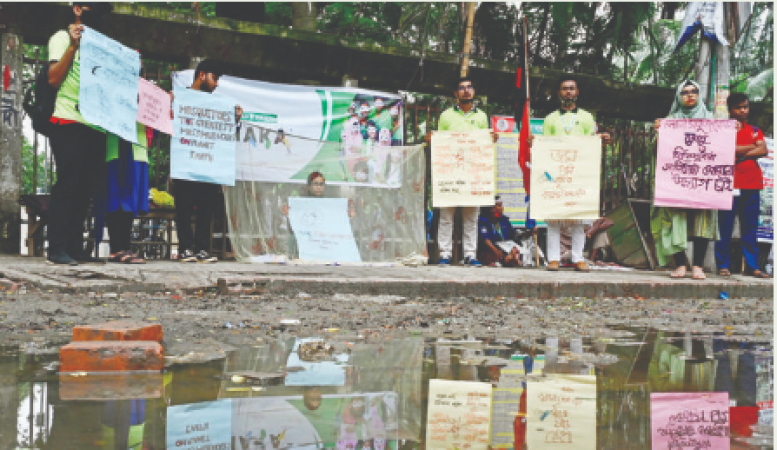
DHAKA: Bangladesh is grappling with an unprecedented dengue fever outbreak, with over 300 casualties and nearly 63,700 reported cases in the current year. This outbreak represents the deadliest wave of dengue in Bangladesh since official tracking began in 2000, underscoring the severity of the situation.
Dengue fever is a viral illness transmitted by the Aedes aegypti mosquito, which thrives in warm and humid conditions. Bangladesh's tropical climate, characterized by high temperatures and humidity, provides an ideal breeding ground for these disease-carrying mosquitoes. The ongoing monsoon season has only exacerbated the problem, creating favorable conditions for mosquito proliferation. The heavy rains have not only facilitated breeding but have also caused flooding in various regions, further complicating efforts to control the outbreak.
In response to the crisis, the government has implemented several initiatives aimed at stemming the spread of dengue. These efforts include widespread insecticide spraying, drainage of stagnant water, and extensive public awareness campaigns. However, despite these measures, the outbreak continues to escalate.
Also Read: Asia Cup 2023: India-Pakistan Showdown Promises Fireworks
Dengue fever is a mosquito-borne viral infection that can manifest with a range of symptoms, including high fever, severe headache, muscle pain, and a characteristic skin rash. In severe cases, dengue can progress to dengue hemorrhagic fever or dengue shock syndrome, both of which can be fatal.
While there is no specific antiviral treatment for dengue fever, early detection and appropriate medical care can significantly reduce the risk of severe complications and death. The virus has four distinct serotypes, and infection with one serotype does not provide immunity against the others. In fact, subsequent infections with different serotypes can increase the risk of severe dengue.
To mitigate the outbreak, the government has urged citizens to take preventative measures, such as using mosquito repellent, wearing long-sleeved clothing and pants, and avoiding areas known for mosquito infestations. These precautions are crucial in curbing the spread of dengue.
Also Read: G20 Summit 2023: Joe Biden and Narendra Modi to Hold Bilateral Meeting on Sept 8
However, the dengue crisis poses multifaceted challenges for Bangladesh:
The dengue outbreak in Bangladesh serves as a stark reminder of the formidable challenges faced by the country in terms of public health. Bangladesh's tropical climate and high population density make it vulnerable to mosquito-borne diseases, necessitating a multifaceted approach to address the current crisis and prevent future outbreaks:
Bangladesh's battle against its deadliest dengue fever outbreak highlights the urgency of addressing public health challenges. The outbreak's multifaceted impact on healthcare, economy, and daily life underscores the need for immediate and long-term strategies to combat dengue and other mosquito-borne diseases.
Also Read: Russia Deploys Sarmat ICBM: Putin's Warning and Global Implications
As the monsoon season persists, the government, in collaboration with international partners, must intensify efforts to protect its citizens, enhance healthcare infrastructure, and work towards a future with reduced dengue-related threats.